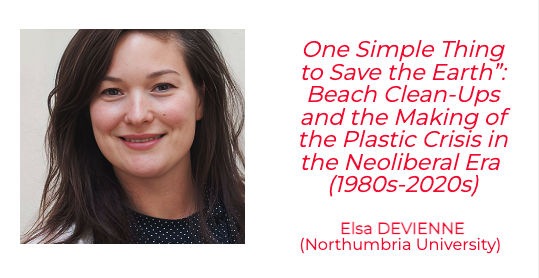SAISON 32 | Le régime et le renseignement russes face à la guerre en Ukraine
Depuis 2014, la Russie nourrit un conflit militaire avec l’Ukraine qui a connu un tour nouveau en 2022 avec une invasion du territoire par le régime de Moscou. Conflit moderne en même temps qu’archaïque, la guerre en Ukraine agite les démocraties qui, au-delà de leurs alliances géopolitiques, se sentent menacées dans leur essence.
De même, conçu comme un conflit qui devait être éclair, l’engagement militaire produit des effets conséquents sur la Russie, notamment son système politique, médiatique et sécuritaire. Véritable contrepoint revendiqué des démocraties libérales (objet du séminaire Métis), il nous paraissait intéressant de s’intéresser aux voies, moyens et conséquences de ce conflit sur la Russie, son régime politique et ses services de renseignement.
22/04/2024 | 18:00-19:30
« La guerre électronique », par Olivier DUJARDIN (Cerbair)
groupemetis@gmail.com
ATTENTION : Nombre de places limité
Évènement en Français
mardi 23 Avril 2024, 17h00-19h00 (séance hybride)
"Crise, modernité et modernisation : regards historiques et sociologiques"
Cyril Lemieux (LIER-EHESS) et Marion Fontaine
S'inscrire
Évènement en Français
Marika Takanishi Knowles
Callot et Watteau au comptoir du costume : pratiques théâtrales et pratiques foraines
Cette intervention explore la relation entre l'art visuel produit dans le sillage du théâtre et la théâtralisation de la vie sociale à la fin de la période moderne (vers 1600-1900). On évoquera la représentation du personnage du Pierrot par Antoine Watteau (1684-1721) et l'œuvre du graveur Jacques Callot (1592-1635). La convergence des pratiques théâtrales avec les pratiques du marché - non pas le marché de l'art, mais le marché comme forum réel et imaginaire de la vie sociale – était une préoccupation essentielle pour ces deux artistes. À cent ans d’écart, ils ont tous deux exploré cette convergence à travers un genre spécifique : la gravure de costume. Une discussion générale de ces thèmes sera suivie par une enquête particulière sur l'utilisation du comptoir de magasin comme dispositif pictural dans les représentations visuelles des foires parisiennes.
Marika Takanishi Knowles est maîtresse de conférences en histoire de l'art à l'Université de St Andrews. Son travail porte sur la culture visuelle française et la vie sociale à la fin de la période moderne (vers 1600-1900). Elle vient de terminer un livre sur le personnage du Pierrot, Pierrot and his world: Art, theatricality, and the marketplace in France 1697-1945 (Manchester, 2024), poursuivant ainsi le travail initié dans son premier ouvrage, Realism and Role-Play: The Human Figure in French Art from Callot to the Brothers Le Nain (Delaware, 2020). Elle a publié de nombreux articles, notamment sur le motif cosse-de-pois dans l'orfèvrerie, Edgar Degas et la représentation du papier dans ses scènes administratives, et les photographies de Nadar.
Inscription
Évènement en Français
Évènement en Français
A Civilizing Relay: The Concept of the “Civilizing Mission” as Cultural Transfer in East-Central Europe, 1815-1919.
Elsbieta Kwiecinska (Université de Varsovie)
Inscription obligatoire
Évènement en Français
Séance coordonnée par Thomas Tari
Clémence GADENNE-ROSFELDER (EHESS), "And Britanny became Pigland. A Social, Zootechnical, and Environmental History of Pig Farming in Britanny (1950s-1990s)"
S'inscrire
Évènement en Français
In the 1970s, health and safety accidents involving plastics and the counterculture’s emphasis on a return to natural materials made plastics uncool, dangerous even. A decade later, plastics were back in style and more convenient than ever. Yet some women in Texas and Oregon started noticing huge amounts of plastics littering shorelines. By organizing the first “citizen” beach-clean-ups, they brought the public’s attention back to the dangers of plastics. While often framed in the rhetoric of the “small gesture” that could “save the earth,” these events offered a radical proposition: holding producers accountable. Today, the beach-cleanup has become one of the most popular forms of environmental action, with Ocean Conservancy’s International Coastal Cleanup Day mobilizing over one million volunteers in 150 countries each year. But, for what and for whom are beach cleanups? By historicizing the beach cleanup, this talk will revisit the plastic crisis, modern environmentalist tactics, and nature consciousness in the neoliberal era.
Elsa Devienne is Assistant Professor of History at Northumbria University in the UK where she teaches environmental history, US history and American Studies. Her first book, Sand Rush: The Revival of the Beach in Twentieth-Century Los Angeles, is out this spring with Oxford University Press. In 2021, the French version of the book won the Willi Paul Adams Award given by the Organization of American Historians and was a finalist of the Prix de la Recherche SAES/AFEA.
REGISTRATION
Évènement en Anglais
Lieu :
Emotions, climate, and the environment.
Historical perspectives (18th-21st centuries)
Friday May 24, 2024
Sciences Po, Campus de Paris
1 place Saint-Thomas-d’Aquin
Morning chair: Anatole Le Bras (Centre for History and Economics in Paris)
9:00-9:15 | Anatole Le Bras, Introduction
9:15-10:45 | Emotional perceptions of the weather - Anouchka Vasak (Université de Poitiers/EHESS), «Où sont les neiges d’antan ? Brève histoire de la perception du froid» [A brief attempt to historicise the perception of the cold]
- Clare Hickman (Newcastle University), «Air, weather and multispecies encounters: An exploration of patients’ environmental experiences of British modern medical institutions»
10:45-11:00 | coffee break
11:00-12:30 | Medical inquiries
- Eva Yampolsky (Université de Genève) «Climate and seasonality as factors of suicidality in 19th-century French psychiatric discourse»
- Léo Bernard (IFRIS) «Une science enchantée. S’émerveiller de l’influence du cosmos sur la vie humaine (première moitié du XXe siècle)» [Enchanted science. Studies on the cosmos’ influence on human life in the first half of the 20th century]
12:30-2 pm | lunch break
Afternoon chair: Giacomo Parrinello (Centre for History at Sciences Po)
2:00-3:30 | Deadly and crazy emotions - Thomas Dodman (Columbia University), «From nostalgia to solastalgia: the history and nature of an emotion»
- Rebecca Jones (La Trobe University), «Navigating crazy weather in arid Australia. 1900s-1950s»
3:30-3:45 | coffee break
3:45-5:15 | Psychopathology of the environmental crisis
- Maïa Fansten (Université (Université Paris-Cité) «Eco-anxiety: the significance of a new emotion, between psychology and politics»
- Sandrine Aumercier (Psychanalyste, Berlin) «Psychanayse, mélancolie environnementale et crise du capitalisme» [Psychoanalysis, environmental melancholia, and the crisis of capitalism]
5:15-5:45 pm | General discussion
Inscription
Évènement en Anglais
Witnessing through Literature and the Arts:
A Transdisciplinary Symposium
May 30 & 31, 2024
Sciences Po, Campus de Paris
1 place Saint-Thomas-d’Aquin
Thursday, May 30
1:45 pm Welcome and Opening Remarks
2-4 pm Panel I- Narratives of Witnessing: Intersections of History, Testimony, and Memory in Genocide Studies
Chairperson: Larissa Muraveva (Bard College Berlin)
Boris Adjemian (CRH-EHESS), “Early Narratives on the Armenian Genocide: Aram Andonian, Writer and Witness”
Judith Lyon-Caen (CRH-EHESS), “What does form testify to? Epistemologies of Testimony among Holocaust Survivor-Historians”
Frédérik Detue (CTELA-Univ. Côte d’Azur.), Charlotte Lacoste (CREM-Univ. Lorraine), Judith Lyon-Caen (CRH-EHESS): “On Interdisciplinarity and Testimony”
4:30-6 pm Artist Address
A Dialogue with French-Rwandan writer Beata Umubyeyi Mairesse: “Reclaiming One’s Own Survival Story”
Welcome Drinks Reception
Friday, May 31
10 am-12:30 pm Panel II- Testimony through Film, Literature, and the Visual Arts:
Witnessing Pandemics and Conflict
Chairperson: James Harker (Bard Berlin)
Thibaut Boulvain (CHSP, Sciences Po), “The Spanish Flu: A Quiet Pandemic”
Laura Kunreuther (Bard College, New York), “Earwitnesses: On the Labor and Testimony of Humanitarian Interpreters”
Amir Moosavi (Rutgers University-Newark), “Warfront Apocrypha: The Dead, Desertion, and Dystopia”
Patricia Zalamea (Univ. of Los Andes) and Helena Alviar (Ecole de droit, Sciences Po), “Bearing Witness: Transitional Justice and Land in the Work of Delcy Morelos”
12:30-2 pm Lunch Break
2:30-4:30 pm Panel III- Auto/Fiction, New Media, and Testimony
Chairperson: Laura Kunreuther (Bard College New York)
Larissa Muraveva (Bard College Berlin), “Nostalgia for the Immediacy: The Role of the Witness and Mediated Experience in Contemporary Autofiction”
Julio Prieto (Universidad Complutense, Madrid), “Archive Fever: Hybrid Testimony and Documentary Fiction in Horacio Castellanos Moya’s Insensatez”
James Harker (Bard College Berlin), “Autofiction, Social Media, and Collective Testimony”
Christopher Fort (American University of Central Asia), “Notes on Abdulla Qahhor’s Testimony”
5 pm-6:30 pm Artist/Scholar Address
Alicia Partnoy (Loyola Marymount University), “When Survivors Write: Literature and Discourse of Solidarity”
Évènement en Anglais


 22/04/2024
22/04/2024 18:00
18:00 




